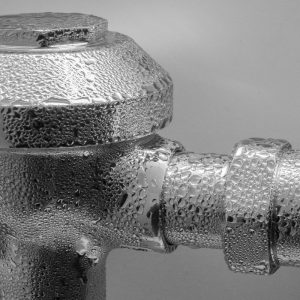Plumbing systems for the winter

The Technical Intervention 24 team is committed to helping customers protect their plumbing systems all year round. In addition to pulling out your winter coats, adding an extra blanket to the bed and stoking the fire, performing a quick inspection of the plumbing system can ensure you stay safe and comfortable for all winter long.
9 tips for winter
Frozen pipes are a serious concern when winter arrives. If it is constantly cold outside, the water inside the pipes can freeze, expanding the pipes, interrupting the water supply and compromising the structural integrity of the system. Instead of facing costly repairs, repiping and water damage due to frozen pipes, protect your pipes by following our simple steps.
Protect your plumbing system this winter:
1. Make sure your pipes are insulated
When the constant freezing air meets your pipes, it can cause the water inside to freeze, forcing the pipes to expand, clog or burst. The best way to combat this cold exposure is to keep the pipes insulated by wrapping the outer pipes in fiberglass pipe insulation or plastic insulation wrap and using a thermal cable to further prevent cold air from reaching the pipes.
2. Close the water to the external taps
Closing the water to the external taps can prevent the formation of ice in the pipes. But, do not forget that after turning off the water in these areas, use the drain plug with a bucket underneath to drain the taps of any residual water left.
3. Let your taps drip
Even a small trickle of water coming from the sinks can keep these lines open and prevent freezing.
4. If you are on a trip, turn off the main water
When you leave the house for a long period of time, take a moment to completely turn off the water. This way, if there is damage to your pipes, you will not have to face serious water damage when you return.
5. Undergo a professional check to identify any water leaks
Early leak detection is the best way to maintain the structural integrity of the pipes. So, even a small water leak occurs and the pipes freeze, the pipes can burst, causing potential water damage and malfunctioning plumbing appliances.
6. Disconnect the water pipes
The residual water in the external pipes can freeze, pushing the ice back into the tap and into the pipe, causing leaks or cracks. Disconnecting these hoses and covering the faucet with a bib or insulation cover will further protect the external plumbing.
7. Seal garages or crawl spaces
The pipes in your home are often hidden behind notoriously poorly insulated cabinets or crawl spaces. Sealing and insulating these areas can retain hot air and protect the pipes.
8. Empty Your Water Heater
If your water heater is not maintained properly, sediment, hard water, and even rust can build up in the system. This buildup can cause inconsistent heating and system damage, leaving you without hot water when you need it most. Thus, emptying the water heater can prevent this buildup.
9. Avoid clogged drains
Being careful about what you pour into kitchen and bathroom sinks is especially important during the winter months. Avoid putting materials, such as cooking oils, fats, and fibrous foods, in your waste disposal. Cold temperatures will cause these objects to harden inside your drains, leading to clogged drains and even bursting pipes.
In case you live in Bath in one of the surrounding areas and need an emergency plumber to repair frozen pipes, insulate your plumbing or repair your home plumbing, contact professional plumbers at the Bath Plumbing Emergency. We are licensed plumbers with over 30 years of experience, offering same day service. Therefore, call us now!